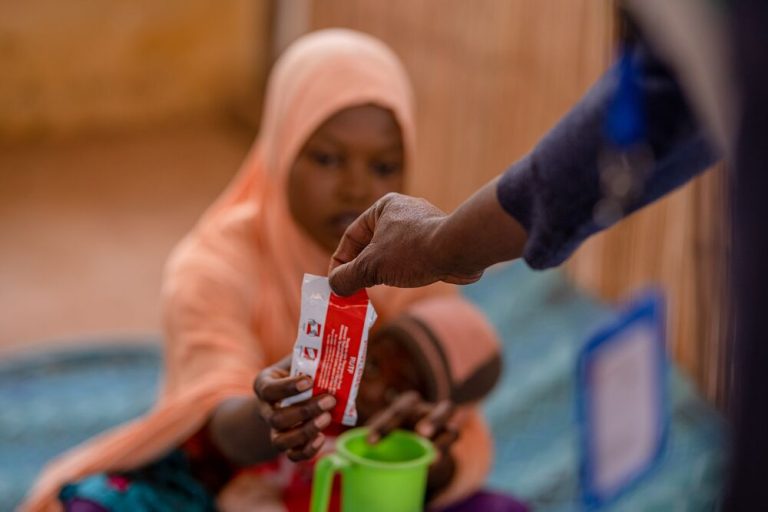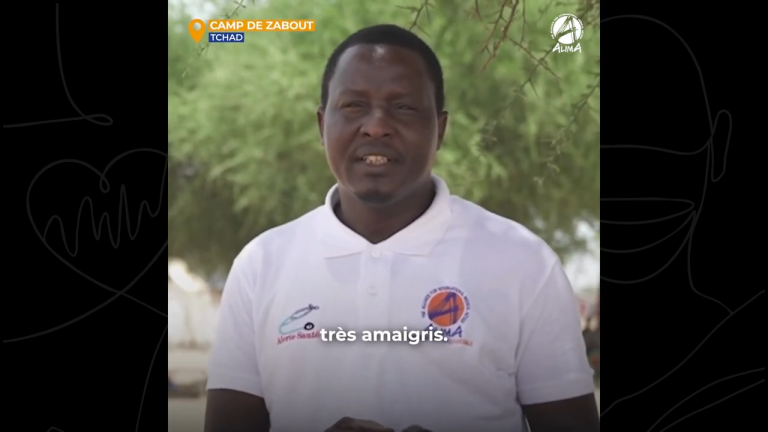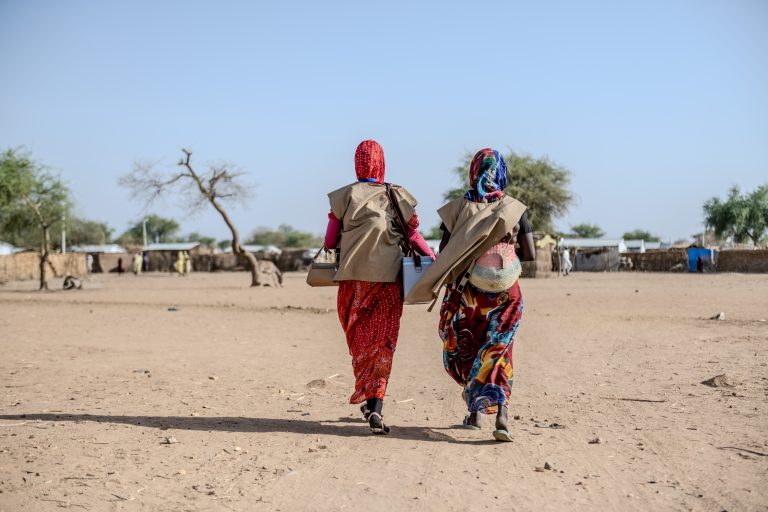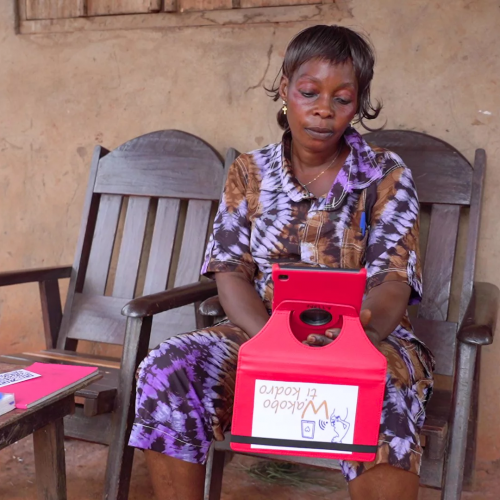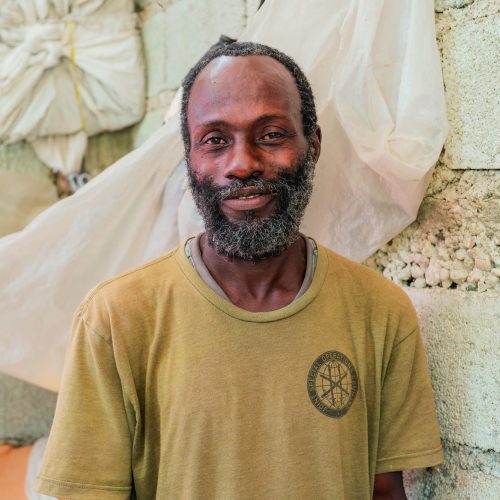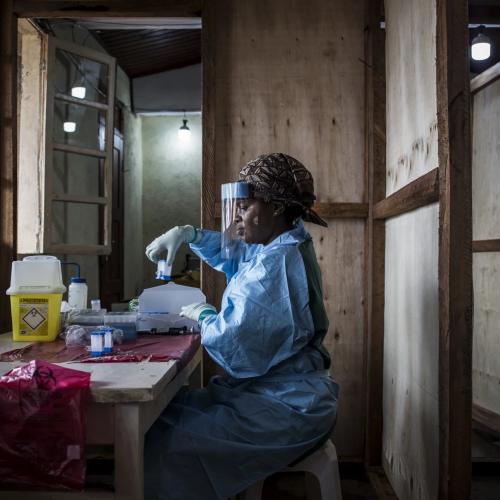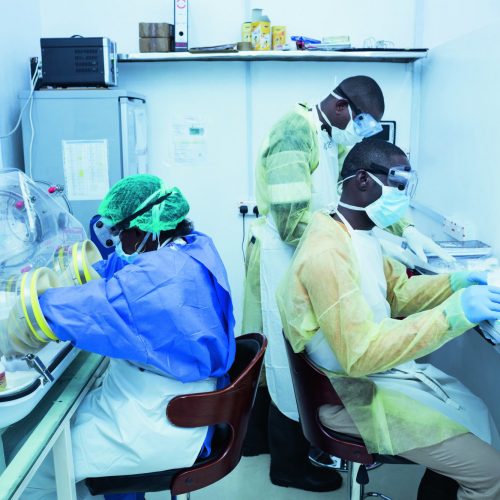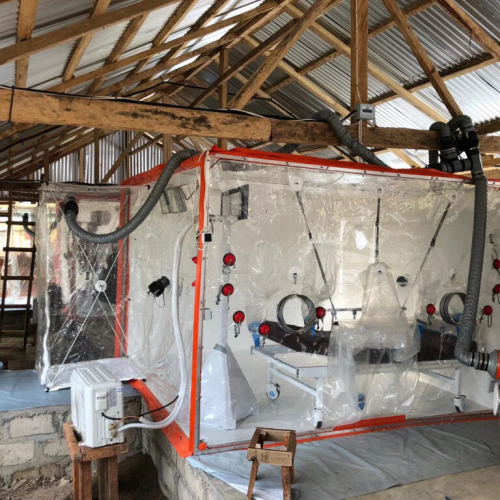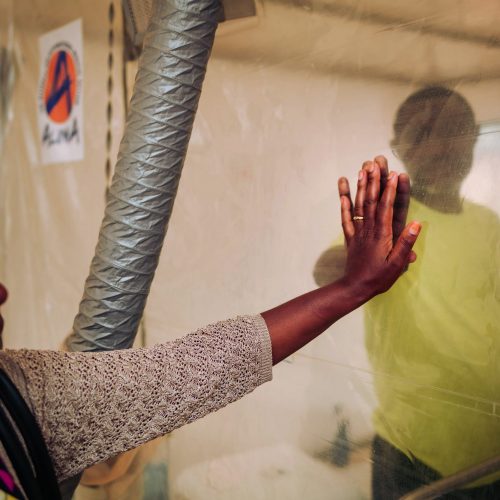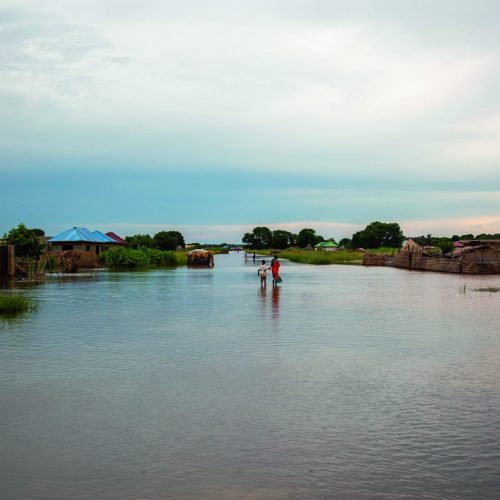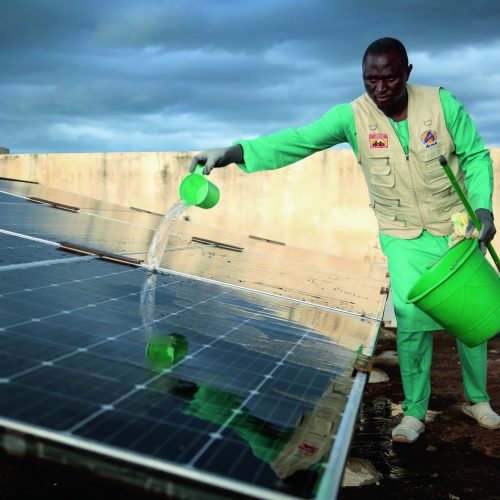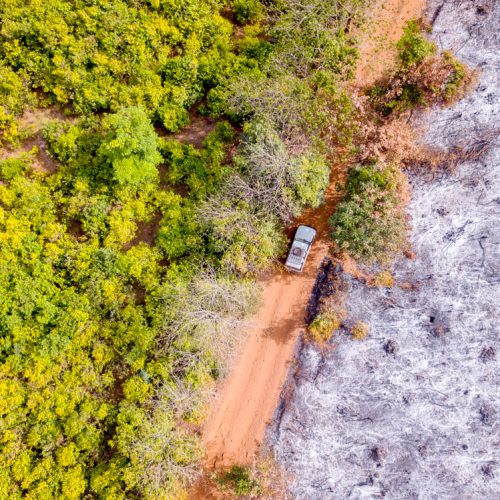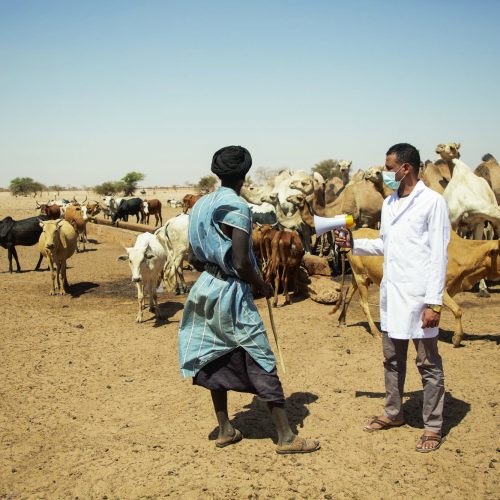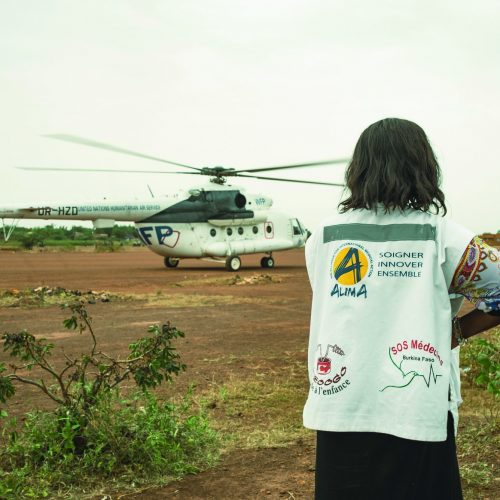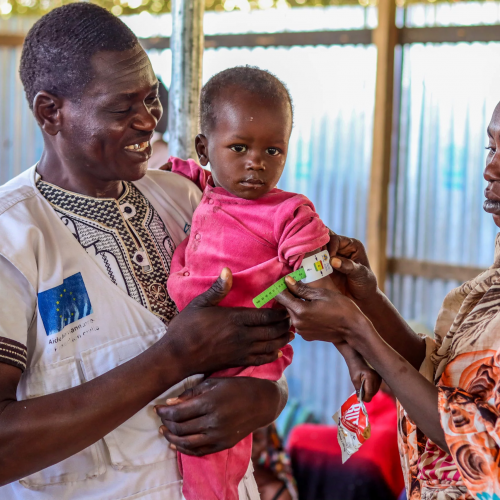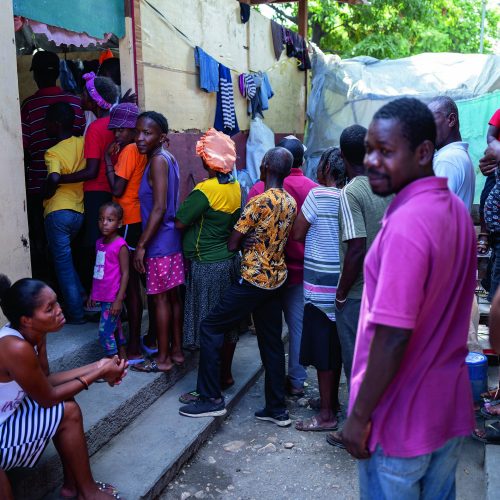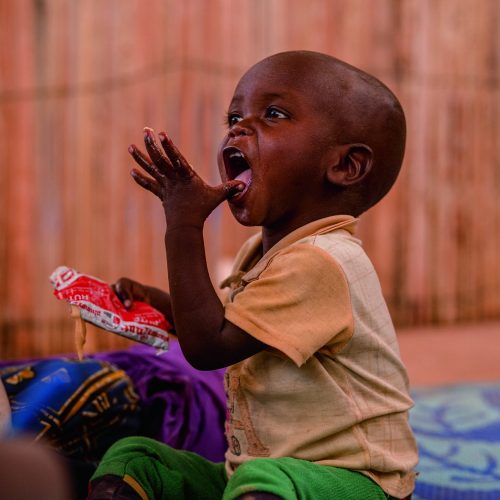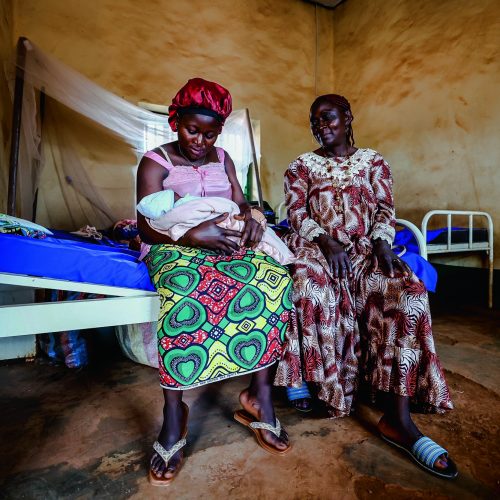In mid-June of this year at the invitation of the Monguno Public Health team, ALIMA vaccinated 18,800 children against measles in less than a week in the city of Monguno in northeastern Nigeria’s Borno State. There are thousands of people displaced in Monguno living in makeshift camps of small, leaky huts with few latrines and little food. The ALIMA team was shocked by what they saw when they arrived – really malnourished children with no access to healthcare.
“The ALIMA team was shocked by what they saw”
We immediately began screening and treating children for malnutrition and discovered that a large number of children were severely malnourished – well over the emergency threshold level We quickly realized that we were in the middle of a humanitarian emergency and ALIMA had to stay. The need was huge.
In July, we sent an experienced ALIMA team from the West African region to assess security and scale up operations in Monguno. Many of our international team members come from Niger, Central African Republic, or Cameroon and can speak the local languages in this part of Nigeria. I think that enabled us to quickly understand the local context and security issues and get to work. ALIMA is now providing medical and nutritional care in clinics in Monguno in four of the largest camps as well as the Maternal Child Health (MCH) Center. When we arrived the MCH was closed and very dirty. We’ve reopened it and put in latrines and beds allowing us to run a small in-patient stabilization center for those who are very sick.
In addition, we are now running mobile clinics to provide pediatric out-patient care in the smaller camps to reach more people in need, including people not living in camps as well as the host communities. It is important to remember that there is no healthcare for the local population either, so we care for them as well. We are mainly seeing malnourished children, measles patients, and lots of diarrhea and respiratory infections. We focus on children under five as they are the most vulnerable and likely to die without treatment.
By mid-August when I was in Monguno leading our emergency team, we had enrolled over 2600 children in our out-patient program for severe acute malnutrition and treated nearly 1900 children for measles in less than 4 weeks. Each team is seeing about 200 children per location every day.
“Can you imagine being a parent in that situation, unable to provide food for your children?”
Food is very scarce and people aren’t allowed to leave the town. Although they are farmers and it is the rainy season, they are unable to plant their fields. Instead they wait for food rather than grow it. Can you imagine being a parent in that situation, unable to provide food for your children?
One woman made a particularly deep impression on me. She was between 35 and 40 years old, but looked much older because she had suffered so much. I met her in a tiny hut with a grass roof that let the rain in. Wrapped in a dirty blanket, she was coughing badly and had a chest wound. Next to her was a small child of about two with conjunctivitis and measles. All they had to eat was rice and oil. Mother and child were very sick, and it was clear that if we didn’t feed them, they would very soon be dead.
The measles outbreak is really worrying because I know it will lead to even more children becoming seriously malnourished or dying. Diarrhea – which is affecting adults as well as children – is equally worrying, because it indicates a lack of safe drinking water. Dirty water can lead to cholera, and with so many weak and vulnerable people, an outbreak of this killer disease be a catastrophe.
In my opinion, our priority in Monguno has to be a measles vaccination campaign to really get on top of the outbreak. Ideally we’d vaccinate all children from six months to 10 years, but that would take almost 30,000 vaccines. We’ve already put the cold chain in place – the generators and refrigerators – and we’ve requested more vaccines.
Equally important is to give everyone in the district access to healthcare. To that end we’ve just started a mobile clinic, which will visit four locations around the district.
Another top priority is treating the many children in the area who are moderately malnourished. If we don’t establish a blanket feeding programme soon, these children will become severely malnourished, and fall prey to diseases like measles.
“I’m really worried about the prospect of a cholera outbreak”
And then there’s sanitation. The lack of latrines means that drinking water is unsafe. With the rainy season just starting, I’m really worried about the prospect of a cholera outbreak. So we really need to get more latrines to the people in Monguno.
The lack of shelter is another huge issue. It’s already raining heavily, and many people here don’t have any shelter – not even a blanket. This will mean more people suffering with respiratory infections.
When I was in Monguno people told me how much ALIMA’s work has meant to them. They appreciated the fact that as soon as we arrived, we started to treat people.
But without more resources we can’t treat everyone who needs our help. In bed at night with a proper roof over my head listening to the rain, I lay awake thinking about the woman and her child I met in that cold, damp hut, along with the thousands of others suffering in terrible conditions, and I wished I could help them all.
Interview of Dr Gbané about the needs in Maiduguri and Monguno

